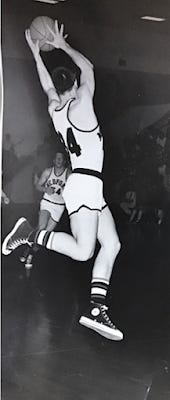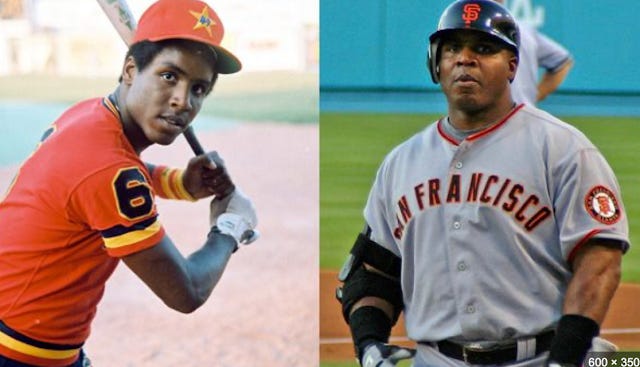Cheating.
"You'll walk the floor the way I do
Your cheatin' heart will tell on you."
Hank Williams, Your Cheatin' Heart, 1952
In my 30-year career as a Financial Advisor I saw the damage cheating did. People lost faith in markets. Clients lost money. Companies like Enron cheated in their accounting. Brokerages gave "strong buy" ratings to stocks they thought were garbage. Banks and mortgage companies bundled "liar loans" into bonds. Ratings agencies called those loans AAA. People cheated to get an edge, to make more money faster.
Yesterday's post focused on cheating to gain political power. Something does not need to be true for people to assert it. Indeed the assertion can be well-established as false. It only needs to be arguably true, which then permits someone to assert that position. An ongoing point of frustration for me, evidenced in this blog, is that people who like the outcome of a pretext legal fiction are so willing to assert it. It turns out that democracy depends on more than the rule of law. A cheater can pretend something is legal and find fellow cheaters to go along with the pretext. Democracy requires people to be good sports and recognize the validity of the unspoken rules of the game they are playing. To bear true witness. It requires good character. For laws to be enforceable, it requires that the public demand good character of others.
Jack Mullen spent his youth in Medford, Oregon where he was a star junior high and high school athlete. There is a strong ethic against cheating in sports at that level. Coaches teach sportsmanship. The joy and validation of victory wouldn't feel right if one cheated to win.
Guest Post by Jack Mullen
Somewhere deep in the American psyche lies a tolerance for cheating--if cheating results in the common good.
John D. Rockefeller, Cornelius Vanderbilt, Andrew Carnegie, and J.P. Morgan somehow withstood Teddy Roosevelt’s trust busting and managed to gain wide public acceptance, if not admiration, both for the work they did in their careers and for their philanthropy. San Francisco's Nob Hill has institutions that bear the names of railroad barons. Huntington, Stanford, Mark Hopkins and Crocker are considered the great empire builders of an America that stretched from coast to coast. The descendants of the people who did the hard manual labor live in tiny apartments in Chinatown, three blocks away. For all their faults, and there were many, the four robber barons made a contribution in the 19th Century. We have railroads to show for their work.
The morality of our 21st Century titans of industry is becoming more and more suspect. Their reputations took an unusually big hit in 2022. Sam Bankman-Fried played too cute with his clients’ crypto accounts and now finds himself in a New York jail. Elizabeth Holmes' company, Theranos Inc., scammed the likes of Henry Kissinger and George Shultz by promoting her supposed pharmaceutical miracle. She is now in jail. Elon Musk may get through this rough patch with Twitter with reputation intact. He had banked some reputation good will; we have electric cars and renewed space travel to show for his efforts as a business innovator and disrupter. But take a look at Bankman-Fried and Holmes. Did they have the common good in mind as they amassed their wealth, based on what now appears to be deceit? The early admiration for these so-called geniuses melted away quicker than a Frosty Cone on a mid-August afternoon in Medford.
In 1954 Jacques Barzun said, “Whoever wants to know the heart and mind of America had better learn baseball, the rules and reality of the game.” There is nothing like baseball to uncover how much cheating America can tolerate.
Two miles south of Nob Hill sits Oracle Ballpark. Barry Bonds, a talented athlete, routinely crushed home runs in to the San Francisco Bay. He smashed the home run records of Hank Aaron, Mark McGwire, and because of his shortened seasons, the great Babe himself.
All, save the most loyal San Francisco Giants fans and Baseball Commissioner Bud Selig, knew and acknowledged Bonds was doing something to get an unfair advantage. It was steroids. It is eye-opening to compare before-and-after photos of Bonds and McGwire. Still, sellout crowds came to see Bonds play, to cheer him in San Francisco, and to boo him at visiting ballparks.
So how did the baseball establishment handle cheating? Baseball commissioned the Mitchell Report, which listed all the players who cheated by using steroids. In addition to big boppers like Barry Bonds and Mark McGwire, the report also included pitcher Roger Clemens and Designated Hitter David Ortiz.
The records of all the above-mentioned players are still in the books. However, baseball’s Hall of Fame refuses to enshrine most of the players who cheated the game, players such Bonds, McGwire, Sammy Sosa, and Roger Clemens. It is significant to acknowledge that Bonds, McGuire and Roger Clemens were considered by most, especially the press, to be boorish, A-1 jerks. But good guy and well-liked Mike Piazza, also a steroid user listed in the Mitchell Report, was voted into the Hall of Fame this past year. Personality and likability matter.Good works matter, too. David Ortiz, a steroid user, was a beloved figure by Red Sox fans. He rallied the City of Boston with his stirring speech after the 2013 massacre at the Boston Marathon. He, too, is in the Hall of Fame.





